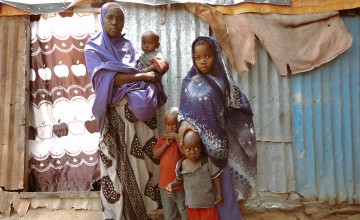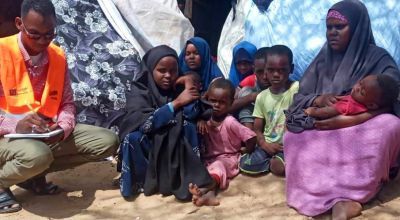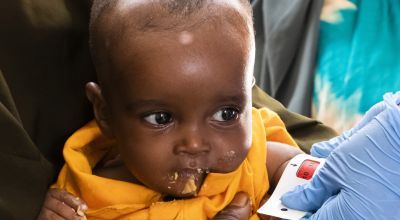
Read our 2023 annual report

Knowledge Hub
Before the ground dried and hardened, Amburo and her husband were farmers. They grew enough maize to sell at the local market, and to provide for their four children. Life was hard, but a life all the same. There were times of joy.
But in Somalia, the distance from survival to crisis is paper thin. For a family living in extreme poverty, without savings or valuable assets, a failed crop can be fatal.
"Our cattle perished,” Amburo says, “the ground dried out, and we couldn't grow crops. There was no rain. We had to go."

Nearly four million people are internally displaced in Somalia, forced from their homes by a combination of conflict, drought, and flooding. In search of food and water, they travel to displacement camps; sprawling settlements of makeshift shelters, dotting the outskirts of Mogadishu and other urban centres.

When forced to leave land, livestock, and livelihoods, parents struggle to feed their children. In Somalia, about 1.5 million children under the age of five are expected to face acute malnutrition in 2024.
To save their children, Amburo and her husband left their village behind, and set out for Mogadishu.
Displaced
The road was hard.
“We encountered many difficulties, including hunger and thirst on the road. The children struggled most,” says Amburo. “We spent three days in the back of a truck usually used to carry goats.”
There were, however, moments of light.
“There were some well-wishers. When the truck stopped in a village, we would ask for food and water, and the village people would kindly feed us.”
Arrival in Mogadishu was not the end of their struggle. Their life in displacement had begun.
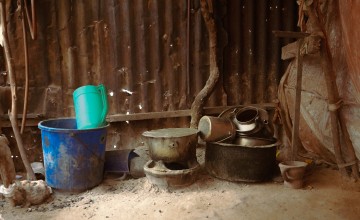
"I couldn't find work when I arrived in Mogadishu. Even now, bits of my body, including my legs and chest, hurt from the journey and the stress. Even if I could go to work, I have nobody to watch over my kids," Amburo says. "My husband does what he can. He works as a log cutter. On a good day, he could make between 3 USD and 7 USD, but that is insufficient."
If they could not survive in Mogadishu, where else could they go? Amburo does not even know where her family and siblings are; "I have no idea where they are today; probably in another camp going through something similar."
Amburo was losing hope.
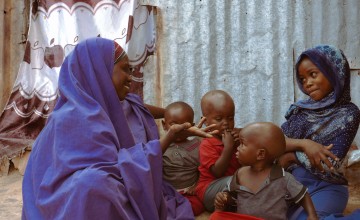
The Somali Cash Consortium
From a friend in the camp, Amburo heard of a group that sends cash to displaced families, with no strings attached.
That group is the Somali Cash Consortium (SCC), funded by the European Union, and led by Concern.
Directly giving cash is an effective way to support people experiencing a crisis or disaster. If there are functioning markets within reach, cash provides a family the opportunity and agency to meet their self-assessed needs.
Amburo’s face lights up when she describes her first payment: "A month ago, I received 180 USD. The first thing I did was pay my children's school fee. I also bought them maize, since it was my favourite food growing up, and clothes to wear. The cash has improved my life, and my children look healthier today."
From April 2023 to April 2024, the SCC sent the equivalent of 9.3 million Euro to nearly 40,000 Somali households, benefitting approximately 300,000 people.
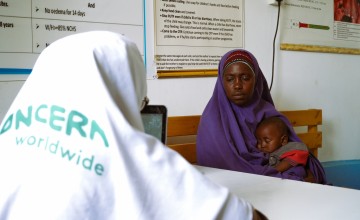
Space to breath
Amburo and her family still live in poverty. Like millions of other rural poor in Somalia, betrayed by the soil, the fight to survive displacement is the fight of their lives. The cash, however, has given Amburo space to breathe. She can plan.
"We still face hunger and have no source of consistent income," Amburo says, "But I want my children's lives to improve in the future. I would like them to have a decent education and to break out from this struggling way of life. I hope to get a job as a farmer again. I miss it so much.
"I'm less anxious than before and hopeful about the future."
